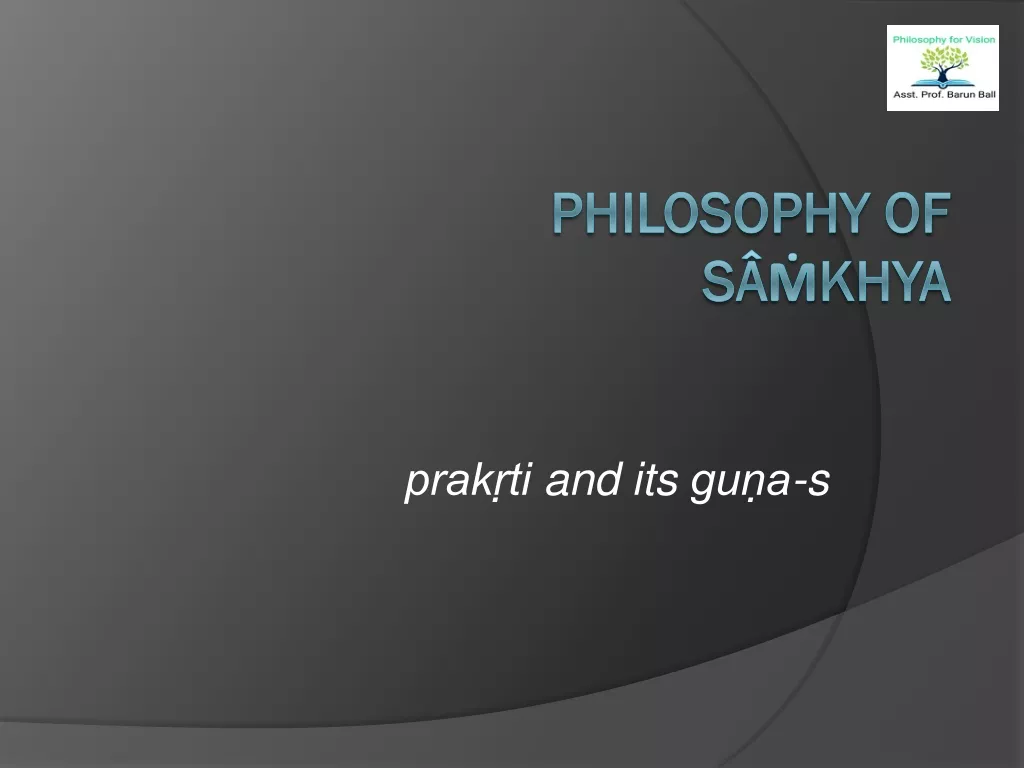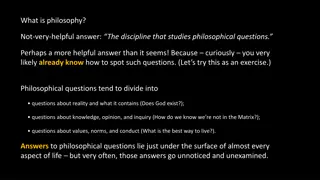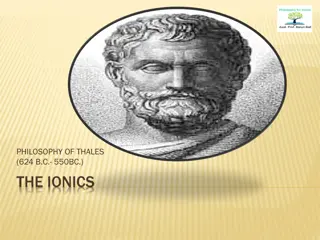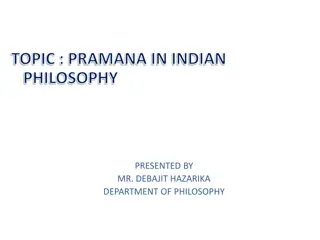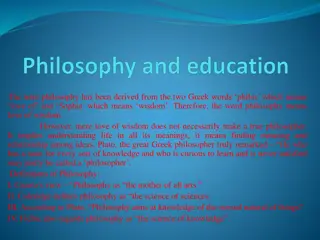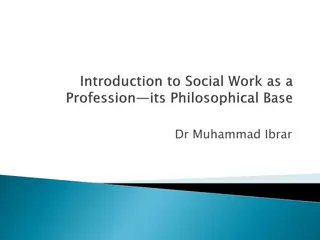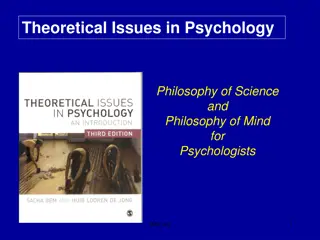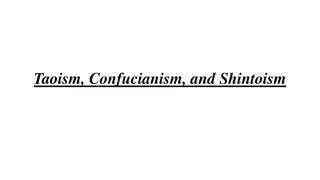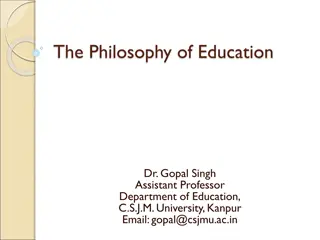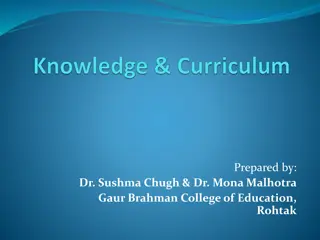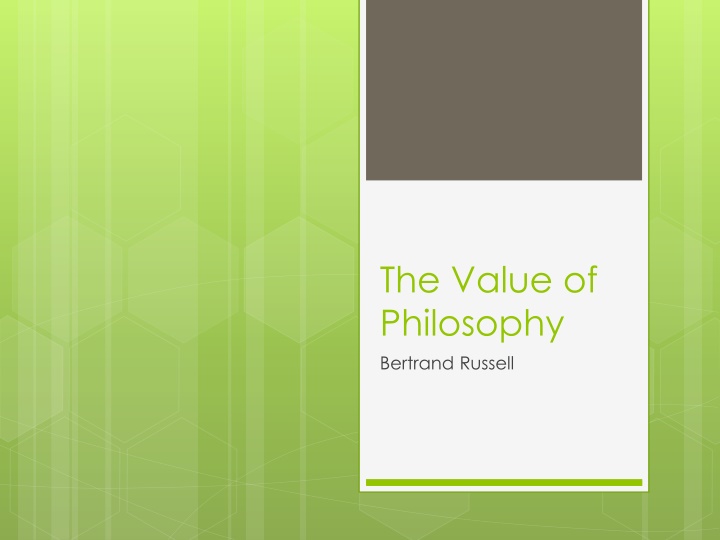
Value of Philosophy: Insights from Bertrand Russell
Explore the essence of philosophy through Bertrand Russell's perspective, uncovering the indirect yet profound impact it holds on enriching lives, expanding imagination, and challenging entrenched beliefs. Russell emphasizes the unique value of philosophical inquiry lies in its very uncertainty, offering liberation from fixed notions and fostering a deeper engagement with the mysteries of existence.
Uploaded on | 0 Views
Download Presentation

Please find below an Image/Link to download the presentation.
The content on the website is provided AS IS for your information and personal use only. It may not be sold, licensed, or shared on other websites without obtaining consent from the author. If you encounter any issues during the download, it is possible that the publisher has removed the file from their server.
You are allowed to download the files provided on this website for personal or commercial use, subject to the condition that they are used lawfully. All files are the property of their respective owners.
The content on the website is provided AS IS for your information and personal use only. It may not be sold, licensed, or shared on other websites without obtaining consent from the author.
E N D
Presentation Transcript
The Value of Philosophy Bertrand Russell
Philosophy Etymology from the Greek terms Philein, meaning love, and Sophia, meaning wisdom Literally means the love of wisdom Generally understood as the rational attempt to formulate, understand, and answer fundamental questions
Branches of Philosophy Metaphysics Concerned with the nature of reality. Epistemology Concerned with the nature of truth and knowledge. Axiology Concerned with the distinction between value and fact. - Aesthetics The distinction between the subjective and objective - Ethics The judgment of human action as right or wrong
Where, according to Russell, is the value of philosophy to be found?
The value of philosophy is indirect, found through its effects upon the lives of those who study it. Russell argues that philosophy does not have direct value; it is not useful in any ordinary sense. Philosophical activity is for the sake of the questions themselves. Pursuing these questions enlarges our conception of what is possible, enriches our intellectual imagination, diminishes dogmatic assurance which closes the mind against speculation, and renders the mind capable of union with the universe.
Why does Russell maintain that the uncertainty of philosophy is more apparent than real?
Russell claims that as soon as definite knowledge concerning any subject becomes possible, it ceases to be philosophy and becomes a separate science. Only those questions to which, at present, no definite answer can be given, remain as the residue which is called philosophy.
What does Russell mean when he asserts that the value of philosophy is to be sought in its very uncertainty?
Russell believes that speculative interest in the universe is apt to be killed by definite knowledge. The uncertainty of philosophy can free our thoughts from the tyranny of custom and dogmatism. The pursuit of philosophical (indefinite) questions can expand the mind beyond everyday concerns, providing a sense of calm and freedom.
According to Russell, what may be the chief value of philosophy?
The chief value of philosophy lies in the greatness of the objects which it contemplates, and the freedom from narrow and personal aims resulting from this contemplation.
What do you think Russell means when he characterizes true philosophical contemplation as finding satisfaction in the enlargement of the not-Self?
This one was up to you. What is the not-Self? What does it mean to enlarge it?


